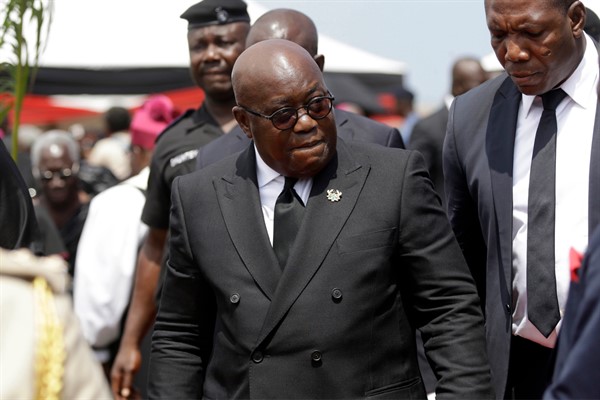President Nana Akufo-Addo’s bid for a second term in Ghana’s upcoming general election took a hit last month, when the country’s anti-corruption czar, Martin Amidu, announced his resignation, citing political interference and lack of support from the government for his work. The incident is a setback for Ghana’s anti-graft campaign, which has seen mixed progress under Akufo-Addo’s government. But while it is a significant development that is injecting some uncertainty ahead of next Monday’s polls, it is unlikely to definitively swing the election result in favor of the opposition candidate, former President John Mahama.
Amidu stepped down as special prosecutor after releasing a report that identified problems with a government plan to monetize future royalties from leases on gold mines. Under the plan, 76 percent of Ghana’s gold royalties would be channeled to a government-owned company incorporated in Jersey, one of the Channel Islands known as a major corporate tax haven. The company, Agyapa Royalty Ltd., was set up as a subsidiary of a national fund charged with the securitization of Ghana’s gold royalties. Forty-nine percent of Agyapa’s shares would be publicly listed on the London Stock Exchange, generating at least $500 million in projected revenue.
Government officials and members of the ruling party have defended the Agyapa scheme as a way to secure additional value from Ghana’s position as the world’s largest exporter of gold, while limiting its exposure to volatile shifts in global commodity prices. But civil society groups have criticized the use of a Jersey-based company due to the jurisdiction’s secretive financial regulations and its vulnerability to money laundering. Moreover, Amidu’s scathing report pointed out numerous breaches in procurement protocols related to the plan. In his resignation letter, Amidu accused Akufo-Addo of treating him like a “poodle,” downplaying the report’s conclusions and meddling with the process.

